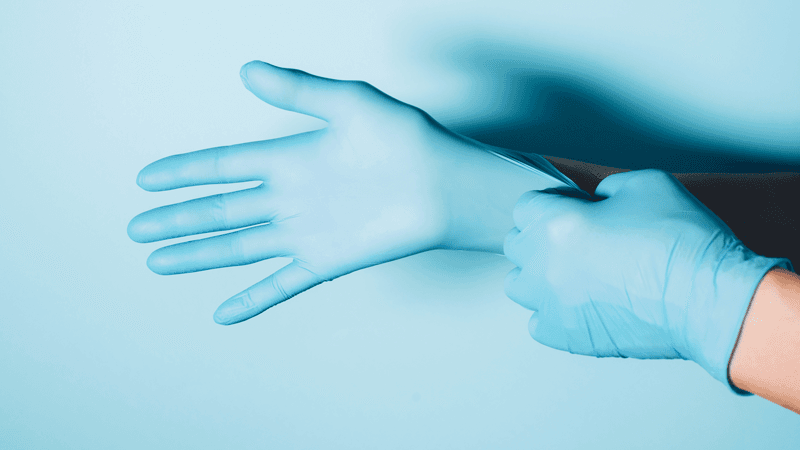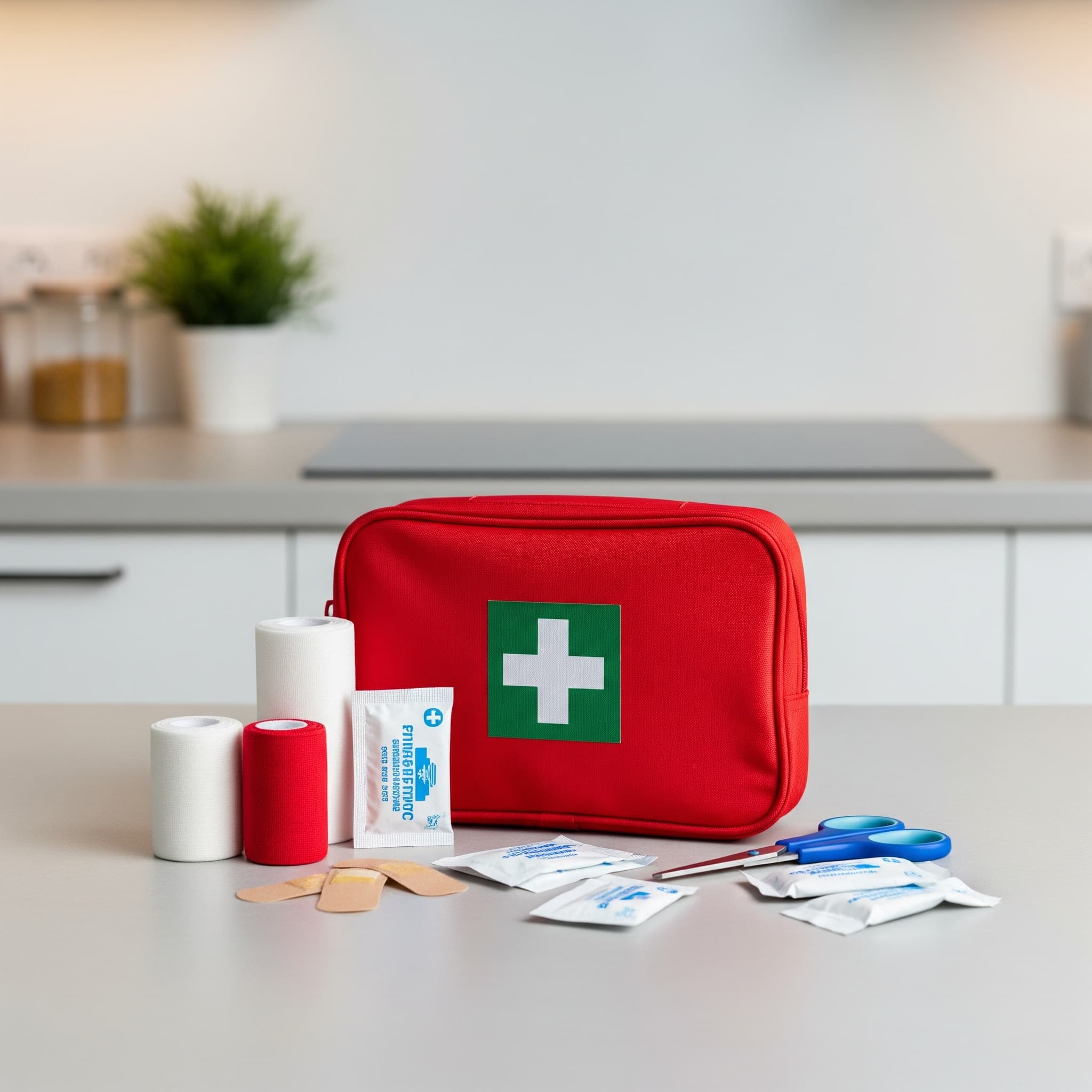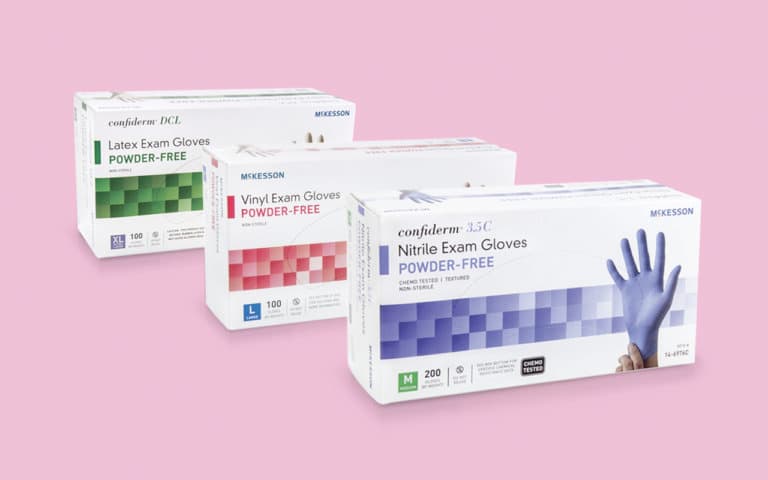The Best Disposable Gloves of 2025
Written by Carewell Team on Wed Jan 01 2025.

While disposable gloves gained widespread attention during the COVID-19 pandemic, they are a fundamental tool in any caregiver's kit. When performing crucial daily tasks for a loved one—like sterilizing catheters, changing diapers, or providing wound care—investing in medical-grade gloves is essential to ensure safety and hygiene for both you and your loved one.
Gloves provide a vital barrier, protecting skin, reducing the risk of microbial contamination, and guaranteeing a more sanitary environment. Some disposable gloves can tear easily or may not offer the necessary level of protection for essential caregiving duties. That's why it's crucial to select high-quality gloves that will reliably meet your caregiving needs.
Understanding medical-grade glove types
Most medical-grade gloves fall into one of three categories: vinyl, nitrile, or latex gloves. Each type has its own pros and cons regarding price, comfort, and safety.
Vinyl gloves are non-latex, widely available, and generally the most affordable. They are ideal for non-hazardous environments and tasks requiring minimal protection. However, they are prone to punctures and breakage and offer limited protection against chemicals, bacteria, and other microbes.
Nitrile gloves are typically the most expensive option, but they offer superior durability. They can be worn for long periods and provide excellent chemical and microbial resistance. These are the go-to examination gloves for many doctors, nurses, and home caregivers due to their high level of protection and comfort.
Latex gloves are cost-effective and provide strong medical protection. The only significant downside is that around 1% of Americans have a latex allergy. If your loved one has a latex allergy, opt for a different type; otherwise, these gloves offer reliable, long-lasting protection.
Our top-quality glove recommendations
1. Mckesson Vinyl Exam Gloves
McKesson Vinyl Exam disposable gloves feature a smoother inner and outer surface, offering high tactile sensitivity. These clear, non-latex gloves are designed for single use. A budget-friendly option, use these gloves for brief periods or tasks like handling food where extensive barrier protection isn't required.
2. Mckesson Powder Free Nitrile Gloves
McKesson Powder-Free Nitrile disposable gloves feature textured fingertips, providing excellent tactile sensitivity and dexterity. Their improved design allows for better conformability, ensuring a perfect fit and extended wear. These blue gloves are designed for single use. Use them if your loved one has a skin allergy or when performing more sensitive caregiving tasks such as wound care, bathing, or assisting with toileting.
3. Mckesson Powder Free Latex Exam Gloves
McKesson Powder-Free Latex Exam disposable gloves are textured and have a thin construction, allowing for ease of use and improved tactile sensitivity. The non-stick interior coating makes them ideal for active wear or use in wet, damp, or dry situations. These ivory-colored gloves are designed for single-use and are safe for use in almost any caregiving situation. Choose them if your loved one doesn’t have a latex allergy and you're looking for a more affordable option than nitrile gloves.
Conclusion: Choosing the best gloves for your caregiving needs
Disposable gloves offer crucial protection for both the caregiver and your loved one. Whether you opt for vinyl, nitrile, or latex, each type provides different standards for affordability, protection, and comfort. Ultimately, the best choice depends on your specific caregiving tasks, budget, and any allergies your loved one may have.
If you have questions about the items we’ve linked in this post, please reach out to our friendly Caregiving Specialists. Call (800) 696-CARE or send an email to support@carewell.com. They can help you make the right decision for your loved one’s needs.
Other Articles You May Like

Best Products to Include in a Caregiver's First Aid Kit of 2025
You have many jobs as a caregiver, but one of the most important is keeping your loved one safe, healthy, and comfortable at all times. If your care recipient hurts themselves and requires medical help, you can minimize complications like excess bleeding until you make it to an urgent care facility or the emergency room.
Complete your first aid kit. >
Vinyl vs Nitrile vs Latex Gloves
Many caregiving responsibilities require medical-grade gloves. Gloves protect you and your loved one’s skin, reduce the risk of microbial contamination, and provide a more sanitary environment.
Medically Reviewed by Kiera Powell, R.N.